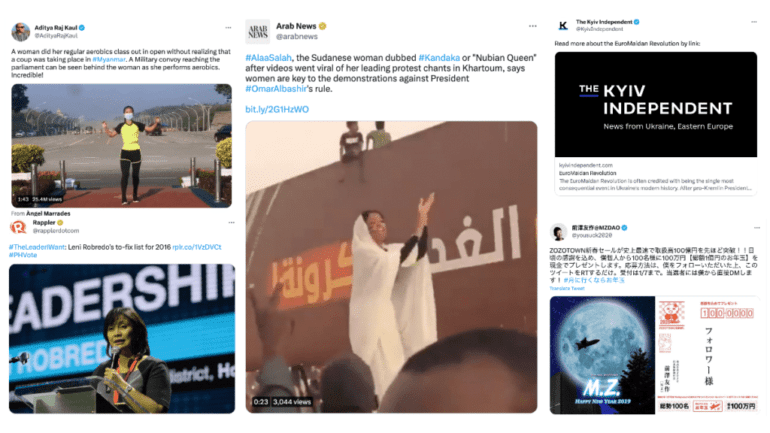BY Theodora Skeadas, a member of Integrity Institute.
*This article was first published in Tech Policy Press.
On Tuesday, February 21, my time as a Twitter employee on the Public Policy team officially came to an end.
A lot has changed since late October 2022, when Elon Musk acquired Twitter. Twitter has informed users they will need to pay for Twitter Blue to continue using a previously free security feature that helps protect accounts from hacking. Twitter has announced that it has stopped enforcing its COVID misinformation policies. And, the stalling of the Twitter Moderation Research Consortium impacts efforts to combat global state-backed disinformation on the platform. All of these changes have introduced questions around Twitter’s role in society and its future.
Given these recent changes, the New York Times opinion column recently sought to capture the ways that Twitter “changed how we protest, consume news, joke and, of course, argue.” The authors subsequently set themselves to “the task of sorting through the trillions of tweets sent since 2006 to determine which were just noise and which deserved a place in the history books.”
They comment that their resultant list of 25 world-changing tweets on issues including the 2016 United States presidential election, the Black Lives Matter movement, and the #MeToo movement is intended as a starting point for discussions and arguments. “What was ranked too high? Too low? What did we leave off?” In response, I offer my own assessment, based on my experience working at the platform on global issues.
For context, over the last two years, I worked on Twitter’s Public Policy team supporting global programs, like the Trust & Safety Council, the Trusted Partners Reporting Program, and the Twitter Moderation Research Consortium. My work at Twitter and in prior jobs over the last 10 years included a focus on the Middle East, North Africa, and Eastern Europe regions; therefore, much of my portfolio at Twitter focused specifically on those regions.
Ultimately, the Times’ list of tweets is powerful, but it is an overwhelmingly US-centric one. Given the transformative role that Twitter has had globally, any assessment of its impact must center international conversations in order to avoid the persistent and systematic underrepresentation of important, diverse narratives.
So, I offer an alternative examination of how the world changed Twitter, in 25 tweets. And, in naming this piece, I have flipped the New York Times’ title (“How Twitter Changed the World, in 25 Tweets”) to “How the World Changed Twitter, in 25 Tweets,” to put people and their narratives at the center, as opposed to the company. The tweets are organized from most recent to earliest, by region.
Middle East and North Africa: the Arab Spring
25. The #MahsaAmini hashtag has been used since 2022 to protest the death of 22-year-old Iranian Mahsa Amini in the custody of the Islamic Republic’s morality police.
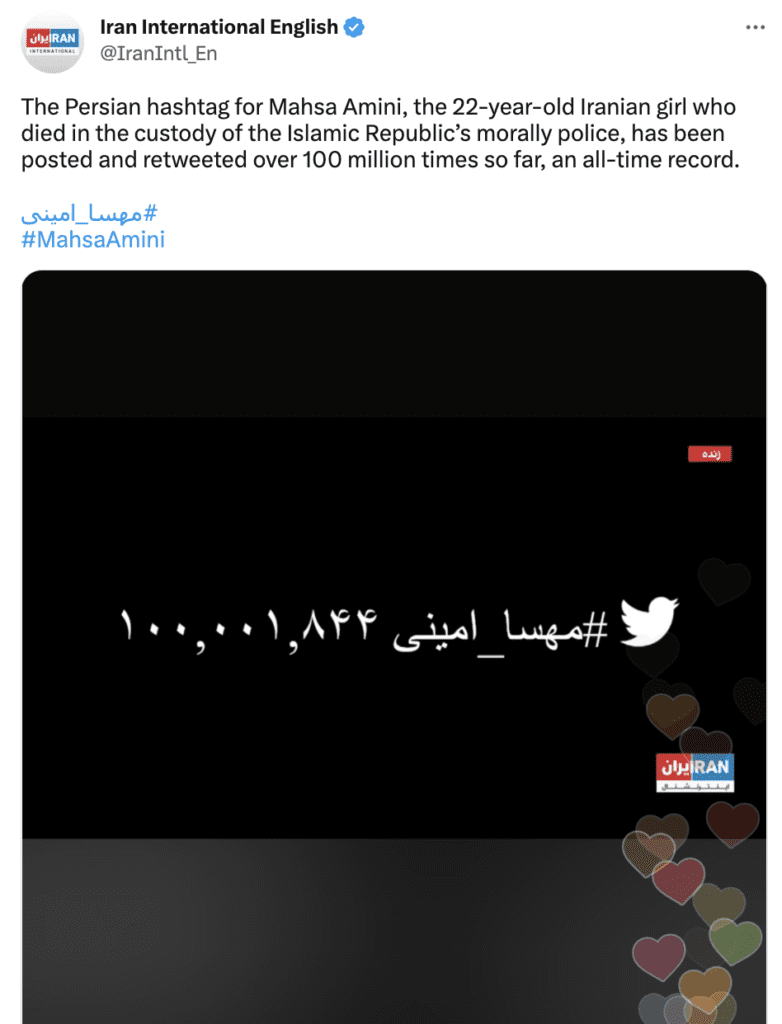
24. The May 2021 Israel–Palestine crisis resulted in a huge conversation on Twitter, including around the systemic deplatforming and censorship of Palestinian voices.

23. In May-August 2013, Turkey’s Taksim protests employed hashtags including #direngezipark (“Resist, Gezi Park), #occupygezi (“Occupy Gezi), and #geziparki (“Gezi Park”) to express widespread discontent with the government’s policies. 3.5 million people participated in almost 5,000 demonstrations across Turkey. While the government ultimately shut down the protests, subsequent conversations around greater political inclusivity at the local and national levels, and climate activism, surged.

22. The New York Times opinion piece included only one Arab Spring-related post, and it’s about Iran, which isn’t technically an Arab country. The massive Arab Spring protests that began in late December 2010 had profound effects, including the overthrow of Egyptian President Hosni Mubarak, and were critical to Twitter’s development as a platform for fomenting social change. This tweet from Al Jazeera highlights the December 2010 decision of Mohamed Bouazizi, a Tunisian street vendor, to set himself on fire to protest against police harassment and the authorities’ lack of concern after having his produce confiscated by the police. Bouazizi’s actions sparked widespread protests and calls to end the authoritarian rule of President Zine El Abidine Ben Ali. Here is the full evolution of the Arab Spring by tweet, including a timeline of Egypt’s 18 day 2011 revolution.
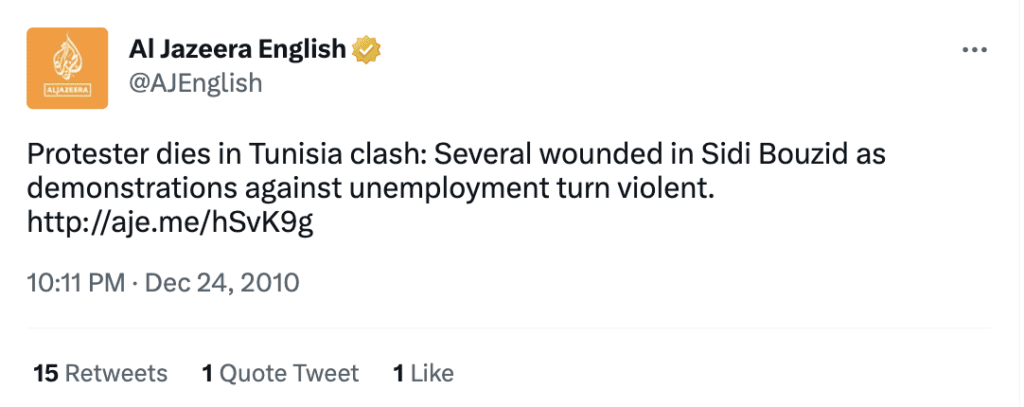
21. On October 13, 2022, a lone protester stood on a bridge and chanted: “Go on strike at school and work, remove dictator and national traitor Xi Jinping! We want to eat, we want freedom, we want to vote!” The resultant protests in China sparked in part by this tweet have been the most momentous in decades.
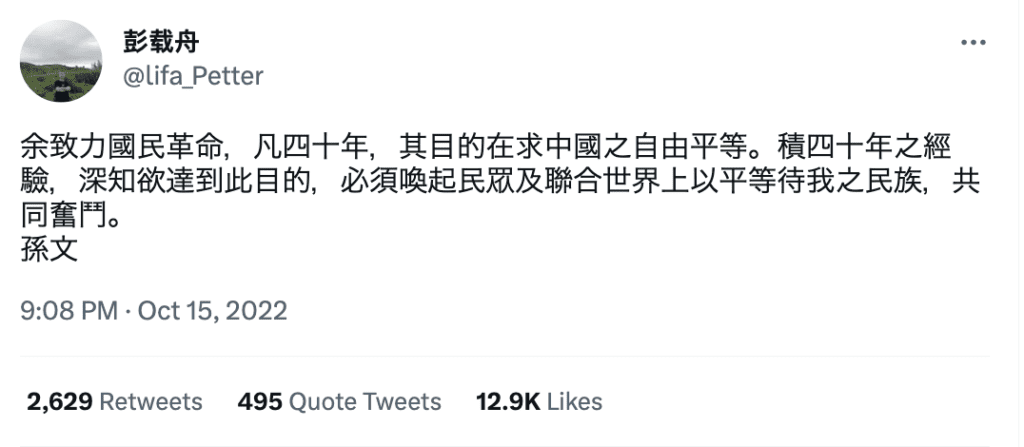
20. On October 1, 2022, a fatal human crush occurred after a football match at Kanjuruhan Stadium in Indonesia. The reactions on Twitter brought the tragedy to the world.
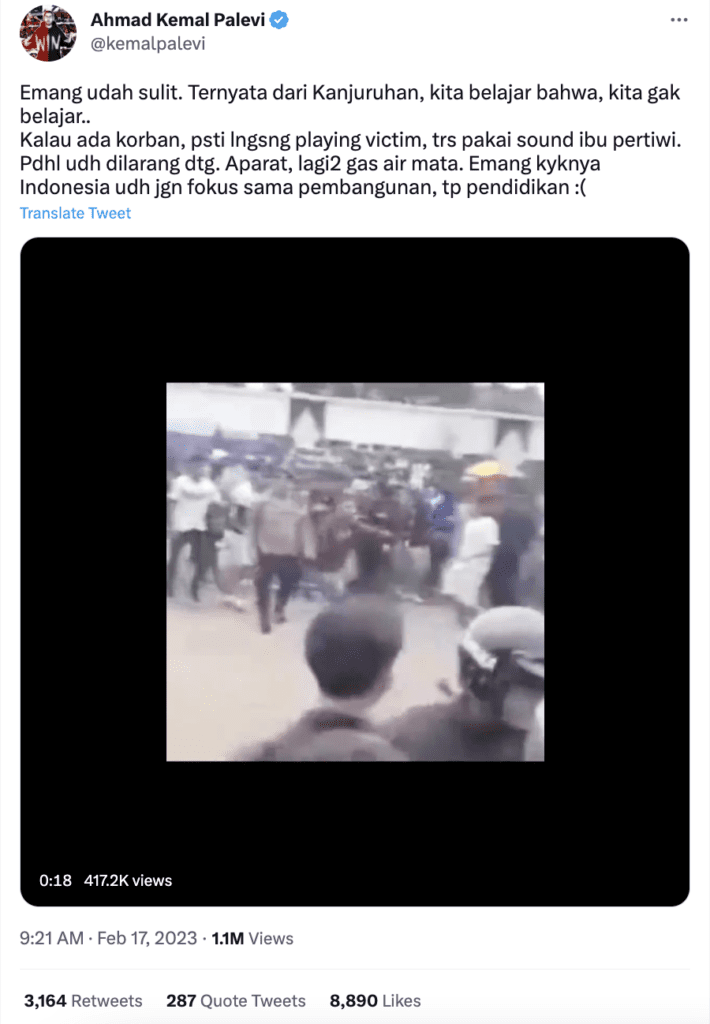
19. In August-September 2022, in Pakistan, amidst severe floods that affected all four of the country’s provinces and approximately 15% of its population, individuals, government agencies, and organizations used Twitter to raise awareness of resources and assistance. In one tweet, Ihtisham Ul Haq shared the phone numbers of emergency assistance providers, and in another, Voice of Women Pakistan aimed to provide menstrual hygiene products to flood affectees.

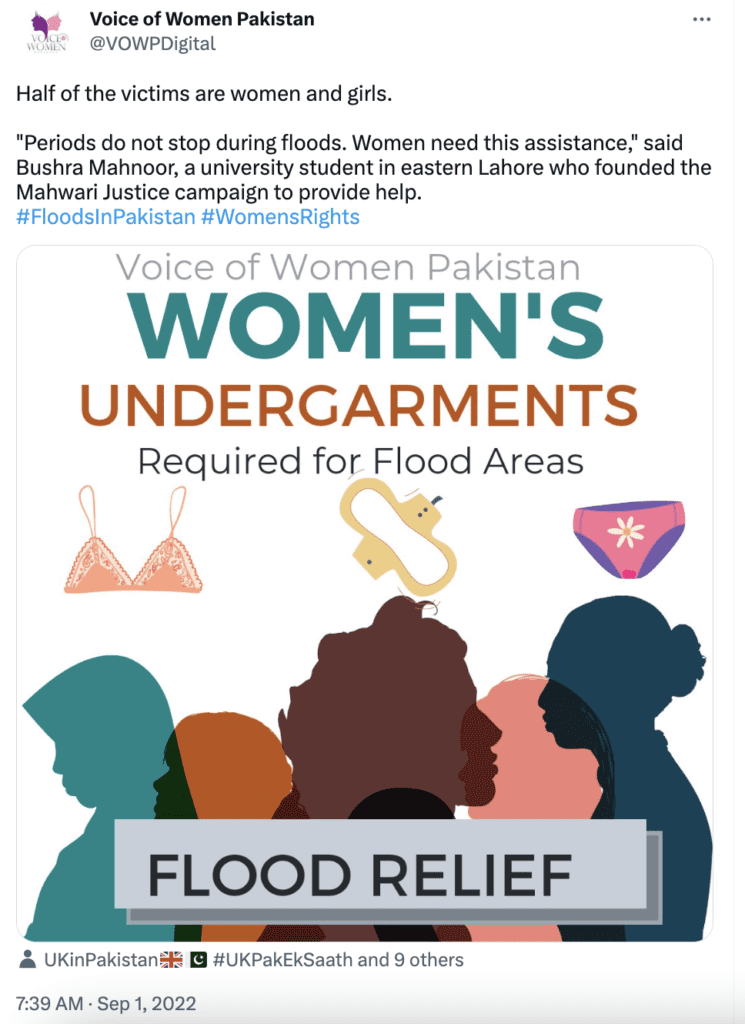
18. In February 2021, Khing Hnin Wai, a fitness instructor in Myanmar, was filming an aerobics class on the street. Without realizing it, behind her, a military coup was taking place.

17. The New York Times list contains one Hong Kong reference, but it is focused on the economic cost to the Houston Rockets and the NBA. While the NBA tweet definitely kicked up a storm, it reinforces the idea that things only matter if they connect to US economic interests. Instead, we can highlight the brave protests of Hong Kong democracy activist Joshua Wong, who was jailed in 2020 for participating in a commemoration of the 1989 Tiananmen Square massacre.
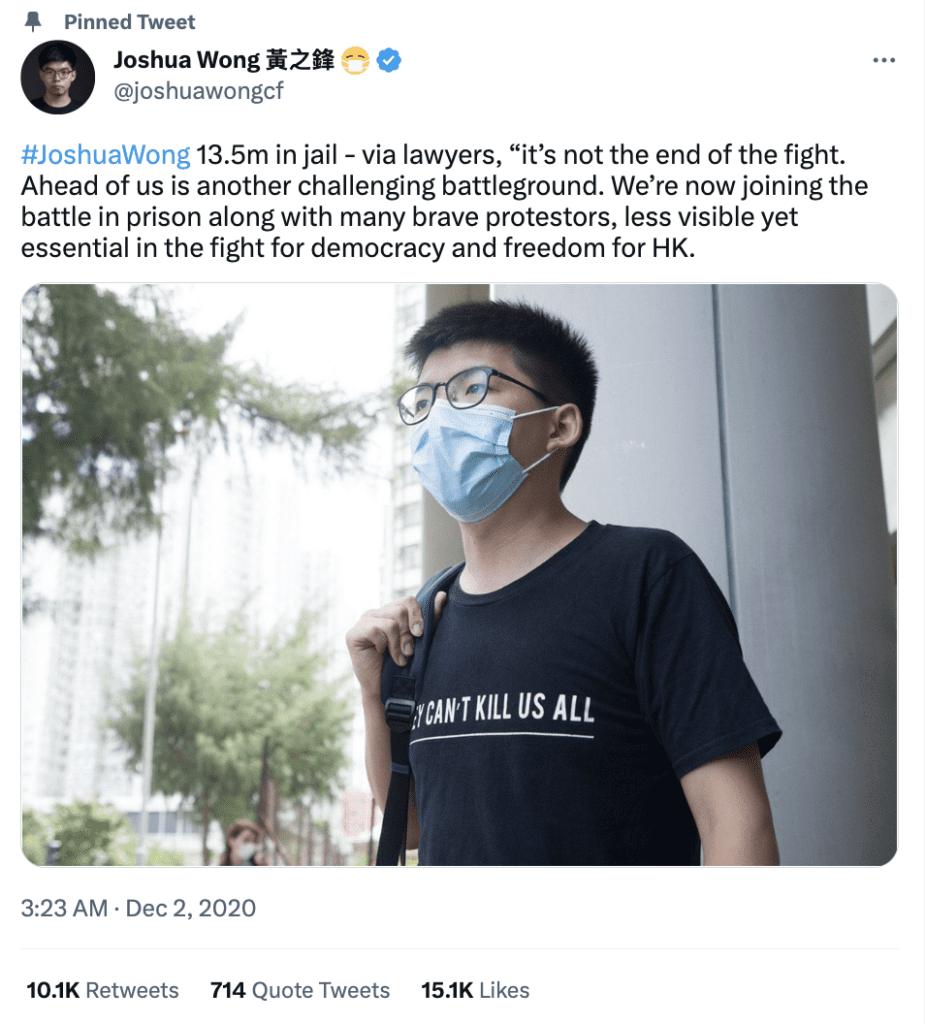
16. In March 2019, a gunman killed 51 people at a mosque in Christchurch, New Zealand. The global outpouring of support in response over Twitter was immediate and resulted in the Christchurch Call to Action Summit, a political summit initiated by then New Zealand Prime Minister Jacinda Ardern, that brought together stakeholders across sectors to better eliminate terrorist and violent extremist content online. The resultant Global Internet Forum to Counter Terrorism committed companies to undertake “a series of measures that included developing tools to prevent the downloading of terrorist and violent extremist material, combatting the causes of violent extremism, improving transparency in the detection and removal of content, and ensuring that the algorithms designed and used by online platforms do not direct users towards violent extremist content.”

15. In January 2019, Yusaku Maezawa, a Japanese billionaire, offered 100 million yen to be shared between 100 randomly selected users who retweeted him. This became the world’s most retweeted post.

14. The November-December 2015 floods in Chennai, India resulted in Twitter’s use as a platform to provide reports, disseminate critical information, coordinate local relief efforts, and crowdsource assistance with hashtags including #ChennaiRains, #ChennaiFloods and #ChennaiRainsHelp.
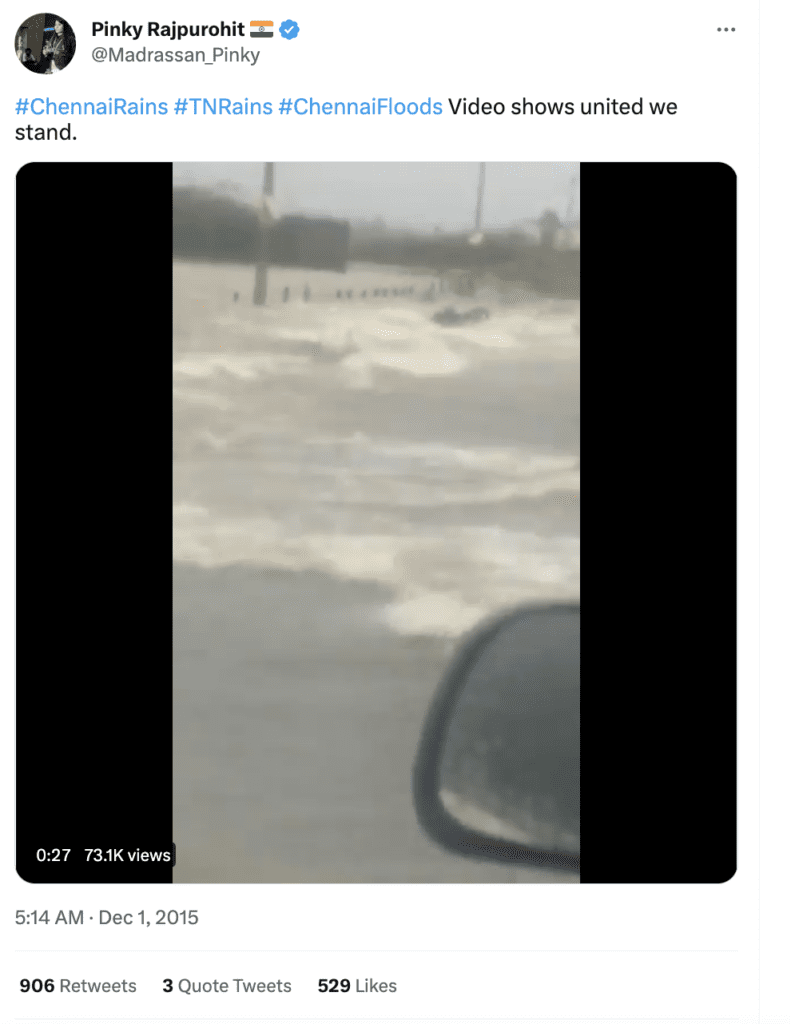
13. In October 2015, Maria Ressa, co-founder of the Philippines’ largest online news site, Rappler, invited five candidates for the 2016 Philippine presidential election to a Rappler forum called #TheLeaderIWant. Only Rodrigo Duterte attended. In the months that followed, as Ressa grew critical of Duterte, his followers launched a campaign against her and other critics, with hashtags including: #ArrestLeilaDeLima, #ArrestMariaRessa, #UnfollowRappler.

12. In December 2012, after the gang rape of Jyoti Singh in New Delhi, Indians expressed outrage about the pervasive issue of violence against women, and solidarity across Twitter.

11. In the recent 2022 Brazilian presidential election, a journalist was attacked after revealing the Bolsonaro family’s property acquisitions.

10. In 2014, a 7-1 Germany vs. Brazil World Cup match was the most-talked-about sports game on the platform ever, with over 35.6 million tweets about the match.
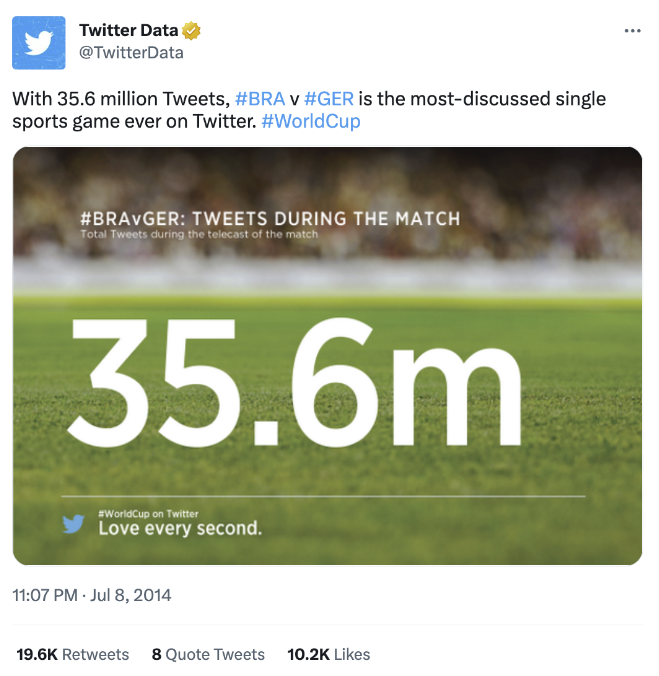
9. Alaa Salah, a woman nicknamed the “Nubian queen” after leading protest chants in Sudan in April 2019 against President Omar Albashir’s rule, advocated for a civilian council instead of a military council to head the transition.
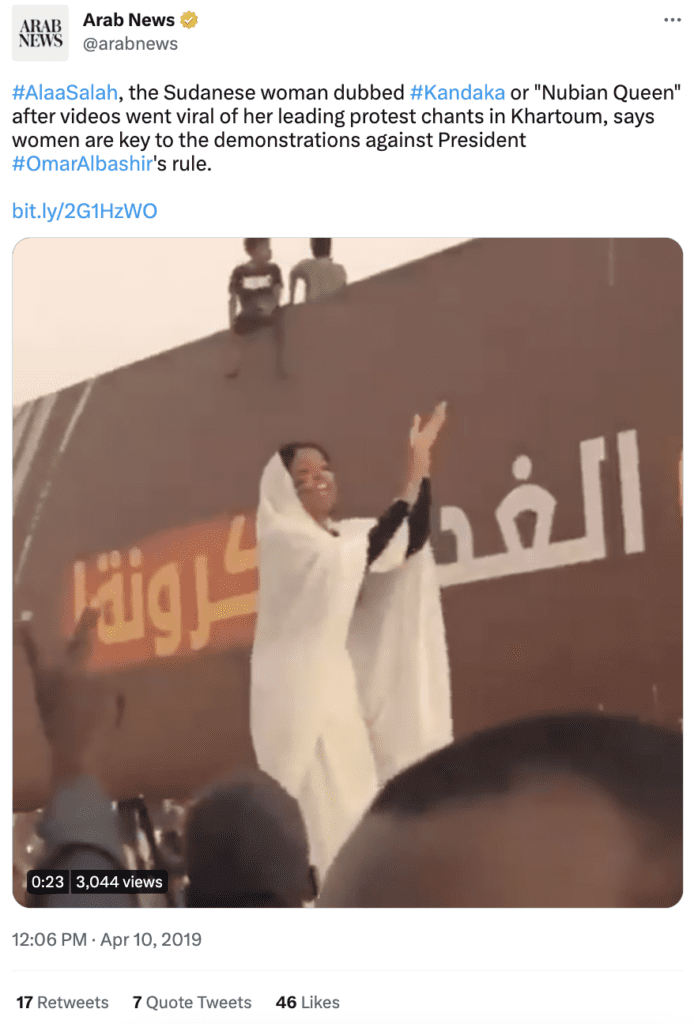
8. The April 2014 #BringBackOurGirls hashtag called for the return of 200 schoolgirls abducted in Nigeria and was ultimately retweeted millions of times.

7. Thousands of tweets about Ebola, which first impacted parts of West Africa in December 2013, including Liberia, Guinea and Sierra Leone, helped elevate awareness of the deadly disease globally.

6. The December 2013 civil war in South Sudan was heavily recorded on Twitter, as thousands of people fled their homes following violence. The war continued into 2014.

5. In December 2022, Greta Thunberg’s retort to Andrew Tate’s tweet about his supercar fleet instantly became one of the world’s top 10 tweets. Don’t forget to recycle your pizza boxes!
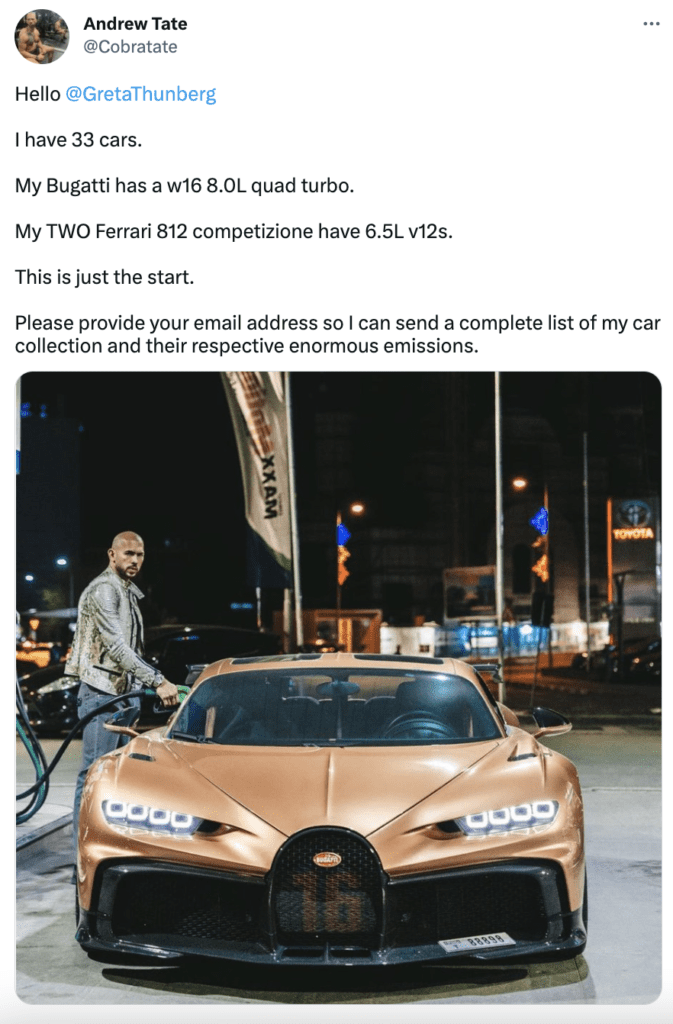
4. In early 2022, Russia used its embassy accounts and its Ministry of Foreign Affairs account to justify its invasion of Ukraine and advance government narratives.
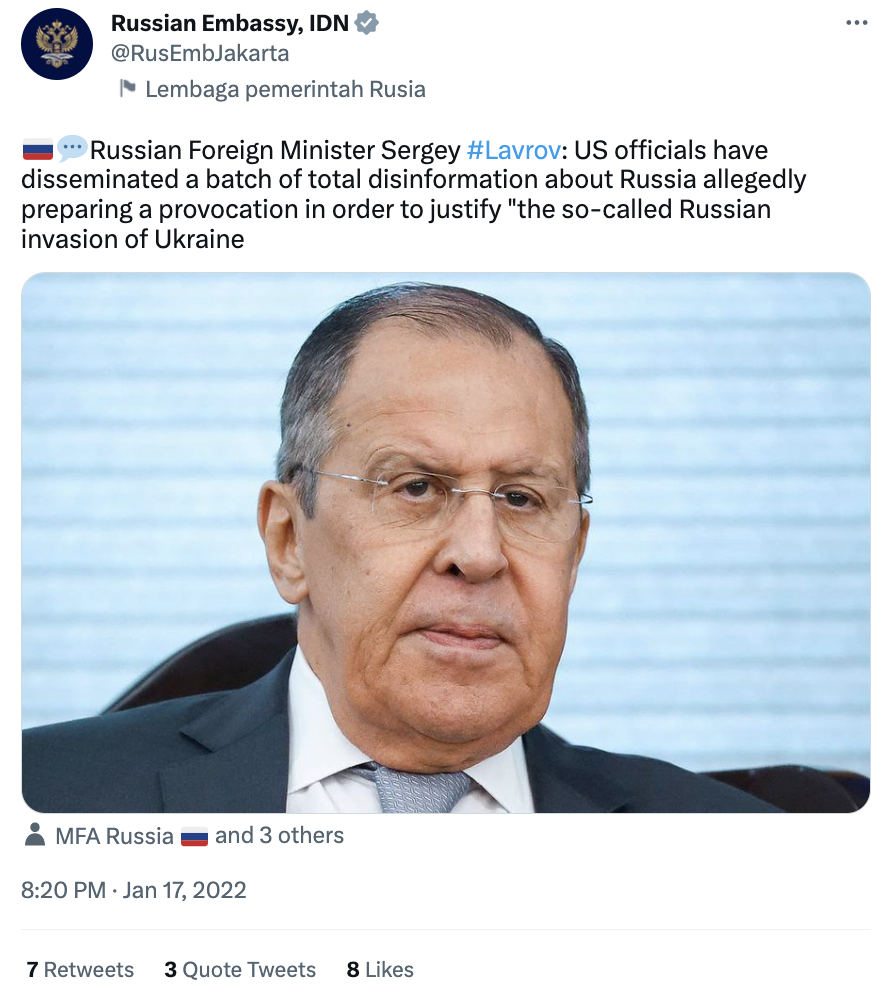
3. The January 2015 #JeSuisCharlie hashtag showed global solidarity with the cartoonists and editors of French satirical magazine Charlie Hebdo after an attack.

2. The 2013 Ukrainian #euromaidan protests began with the refusal of president Viktor Yanukovich to sign the EU–Ukraine agreement. The war, which continued with Russia’s invasion of Ukraine in February 2022, has been heavily documented on Twitter.
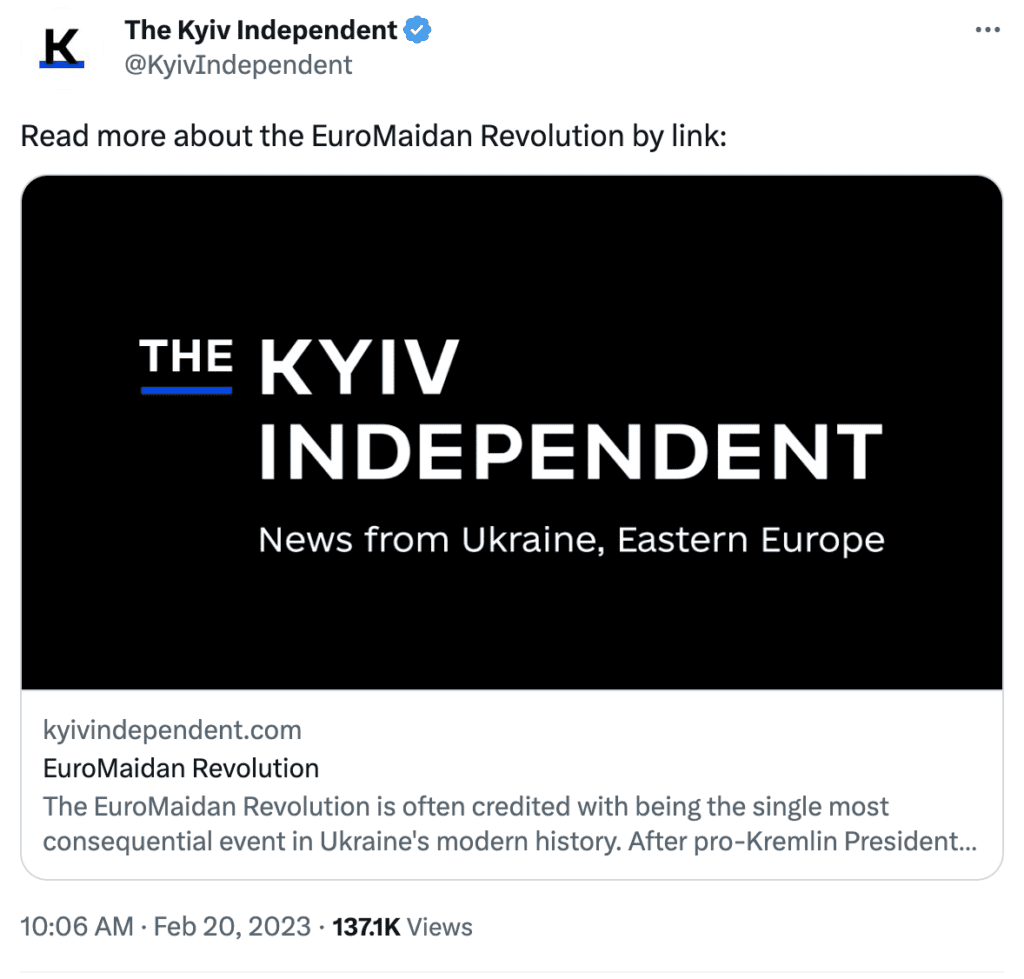
1. In October 2013, Lucy Mosley, Twitter’s Head of Marketing in the UK office, tweeted #LoveWhereYouWork while she battled cancer. While she unfortunately passed away a few weeks later, her message lives on in the hearts of Twitter employees (and ex-Tweeps) everywhere. This tweet is a reminder that, beyond important and historic events, people share their most intimate hopes and fears on the platform as well. Read more about Lucy’s story.
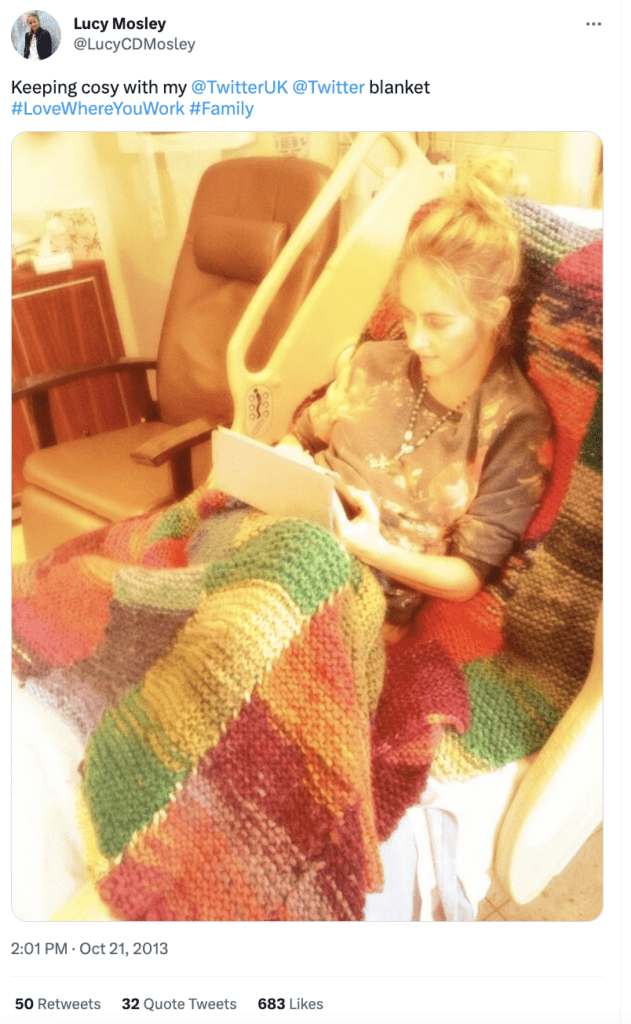
Ultimately, the dismantling of a range of teams, including sustained efforts around human rights, civic or elections integrity, crisis response, and tackling information operations, raises concerns that Twitter may be less prepared than it was previously to operate in a global context.
And yet, while Twitter’s oversight processes have changed significantly in the last few months, raising important safety concerns, the public and state actors continue to use the platform. Clearly, there continues to be real significance in accounting for these defining moments. While the future is always uncertain, social media will likely continue playing a pivotal role in documenting critical world events and empowering communities to address injustice globally.
Note: translations above are from Google Translate and may contain inaccuracies.
Theodora (Theo) Skeadas recently left her role at Twitter, where she managed the Trust and Safety Council, managed a research hub within our Public Policy team, supported the Twitter Moderation Research Consortium, and managed a trusted partners program. She is currently part-time consulting with Carnegie Endowment for International Peace’s Partnership for Countering Influence Operations, National Democratic Institute, and the Committee to Protect Journalists, and works part-time as the Executive Director of Cambridge Local First, a community nonprofit that addresses local economic development issues. Previously, she worked in national security at Booz Allen Hamilton and in international development organizations in Morocco, Turkey, and elsewhere. She has an MPP from the Harvard Kennedy School and a BA from Harvard College.

